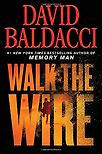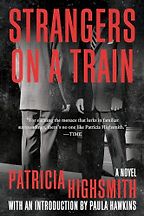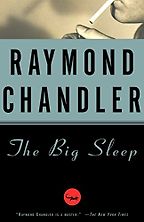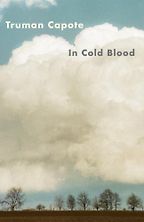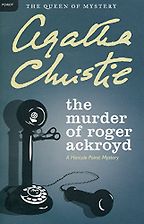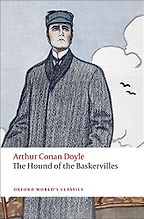Before we discuss your picks for the best mystery books, do you have strong opinions about genre boundaries between, say, mystery, thriller, and crime fiction?
No, I don’t. As a storyteller, I’ve always thought that you should just focus on the story and not try to mentally put it into a particular box. With mysteries and thrillers, some might say that thrillers have higher stakes and more convoluted plots, whereas mysteries can be more streamlined and could be just solving a murder. But for me I’ve always just looked at the story. Stories are stories. Some might have a bit of mystery, some a bit of thriller, and some have a little bit of everything.
Mystery is a genre where a resolution is both expected—you expect the mystery will be solved in one way or another—and yet also unexpected, because you shouldn’t see the ending coming in a great mystery novel. Can you say something about the space that this gives you as a writer?
That’s right. Every mystery obviously has a puzzle component to it. You’re putting the puzzle pieces together, and at the end of the book they will represent a fully worked-out picture where most things are resolved. You might have a few hanging threads here and there. And it’s a competition because the reader is going along, trying to find the clues and figure out the ending—who did it?—before they get there. I understand that.
But my job as a writer, keeping in mind that I know there’s a little competition going on, is to put the building blocks in place. I’m not necessarily thinking about giving the readers all the information so they can solve it; I’m trying to structure a plot so that the people who committed the crime and the people who are trying to solve the crime—that everything is there for one to figure out the other. So, I’m looking at whether I have things in place so the people who are investigating the crime can make sense of it and reach a resolution—to arrest or punish whoever did it.
The added benefit there is that I’m laying these clues and allowing these leads to develop, and the reader is looking over the shoulder of the investigators and following along. So, readers can follow along and understand everything that’s going on. And if they reach the resolution before the end of the book, then they can be very happy and go on Amazon and say that I telegraphed the ending and they outsmarted me.
Lots of mystery fans are familiar with your books, but may not know that you and your wife also do a lot of work to support literacy. Can you tell us about the Wish You Well Foundation?
My wife and I started the Wish You Well Foundation around eighteen years ago. Its mission statement is very simple: to eradicate illiteracy. Reading is critical. One, for being successful and reaching your potential in whatever you do in life. Two, it’s also critical if you want to live in a free and healthy democracy. If people can’t read, you don’t live in a free and healthy democracy—you probably live under an authoritarian regime.
You might say, what are you talking about? Well, the only way a democracy truly works is if people are well-read and informed and able to make good decisions at the voting booth. If you have a system where people are not well-read, where they depend on others to feed them information in order to make important decisions, then you’re going to end up with a very bad political situation. This can happen when people make really poor decisions or let leadership come into power that’s really bad and no one stands in front of them. Reading and being informed is the way you stand in front of them.
“It’s a competition because the reader is going along trying to find the clues and figure out the ending”
So, we fund literacy organisations and programmes across the country. We’ve funded programmes in pretty much all 50 states. We have poured millions of dollars into helping empower people and helping them learn to read at a higher level, allowing them to become gainfully employed with better paying jobs and also to put books in their homes. One of our other programmes is called Feeding Body and Mind. When I go on book tour, I send out these big white boxes; my fans fill them up with used books and we pay to have them sent to food banks around the country. Because if you’re food-challenged, then the chances are very high that you’re also literacy-challenged. Illiteracy and poverty go hand in hand. So, we get books to the homes of people who traditionally don’t have money to spend on books.
I’ve seen many bad results from no books being at home; I’ve never seen a bad result from books being in a home. Books are great. They’re some of the best friends you can have, particularly at a time like this when people can’t get out and about. Opening up a book and escaping into somebody’s imagination for a little bit of time in the middle of a pandemic could be the best thing you can ever do for your mental health. So, the Wish You Well Foundation really tries to help as many people as possible to read at a high level. And we’ve been doing that for the past 18 years. And we will continue the fight.
Let’s take a look at your book choices. They all cluster around the first half of the 20th century. Why do you think this was such a fertile time for the genre?
Two of the greatest mystery writers of all time came about during that period, with Agatha Christie a number of decades later than Conan Doyle. I cut my teeth as a child on both of those writers. I first started reading the Jane Marple and Hercule Poirot stories. I also remember the very first Sherlock Holmes story that I ever read was The Blue Carbuncle. I was about 14 and I remember reading this story and thinking “Gosh, I hope he’s written more of these stories!” I had no idea—and it turned out he had written a lot of other stories.
Agatha Christie really spoke to me because of her plotting skills, in how she put these really complicated plots together. You have the marvellous Poirot and this incredibly inventive character with Jane Marple who sees all the brutality and criminality and cruelty in human beings while living in a quaint little village in England called St Mary Mead.
As for some of the others, the hardboiled private investigator Philip Marlowe always particularly spoke to me. I love Raymond Chandler; I got into him after I started reading Dashiell Hammett in high school and college. My dad fought in World War II, and Chandler was writing in that time period. I remember talking to my dad about the time when he came back from the war. He just wanted a fresh start. I think some of Chandler’s books represent people trying to find their place in a very difficult time. There’s a little bit of a parallel right now—not war with another country, but with a virus that is killing people all over the world. It’s this silent, invisible enemy and we’re marshalling all our efforts to defeat it. It brings people together, hopefully more than temporarily, but also makes people reprioritise what’s important. Now, we can see how quickly it can all be taken away. I think the same thing happened after World War II.
In the 20th century, the world had seen two separate world wars and there was a lot of angst and uncertainty. And back then you couldn’t simply go on your smartphone or computer to find out what was going on. People lived shorter lives; they were looking for something better or more hopeful. These types of books were great entertainment, but they also spoke to that time as well.
Your first book is Strangers on a Train by Patricia Highsmith. Can you tell me about this one?
I remember reading this when I was in high school. It was a book that I had heard lots of other people recommend. I just liked the title—strangers on a train—what could that possibly mean? Now we’ve had lots of books since like Girl on a Train and things like that. It seems like trains are great places to either witness really bad things happening or plot really bad acts.
Patricia Highsmith is known for being one of the greatest psychological thriller writers of all time. The plot for Strangers on a Train is not as complicated as you might think it would otherwise be. But it’s really driven by the characterisations of the main protagonists. You have two people from vastly different types of life. You have a very competent and educated architect in Guy Haines. And then you have the psychopathic rich boy, Bruno.
They meet on a train; it’s just happenstance, and I think that draws people in. It drew me in because it talked to me about the randomness of choices and how one person has a little bit of information and all of a sudden you’re in a terrible situation. In Cold Blood speaks of the very same thing: just a random act, one person telling another person, “Hey, this guy has a bunch of money on a Kansas farm—you might want to get it,” and it turns out that not only is there no money but a horrible crime is committed because of it.
“Patricia Highsmith is known for being one of the greatest psychological thriller writers of all time”
In Strangers on a Train, two men come together and the only commonality they share is they both have problems with people in their lives: Guy’s adulterous wife, who he wants to leave in order to marry the woman he loves, and Bruno’s overbearing father. So, they strike up this deal to take on each other’s murder. You think who in the world would do this? Particularly an educated man, a seemingly normal, reasonable guy like the architect. But emotion can make people do things. In this book, with Haines at least, after Bruno did what he did, he wouldn’t let it go. I think if Haines could have figured his way out of it and gone on with his life, then he would have. But Highsmith really plays her ace in the hole, and that’s guilt—the guilt that people feel. So, after Guy does what he has to do—kills Bruno’s father—he can never get over that.
SPOILER WARNING…
The episode in the book where Guy attempts to save Bruno’s life is really a final dagger in the heart. He confesses to his wife’s lover and the detective overhears. It’s not the greatest way to end the book, having someone eavesdrop rather than having a detective figure it out, although Guy was certainly on the suspect chain. But really, it was a remarkable study of human beings in all their complexity.
A lot of mysteries in television shows and books are about people who want to get out of a situation. How many shows have you watched on television like Law and Order where a husband kills his wife, or a wife kills her husband, and the first thing you ask yourself is: have they never heard of divorce?! Just get divorced and go back to business! But there are complicating factors where there’s just rage, anger, money, and kids involved. Strangers on a Train just speaks to the randomness of human events, how people can rationalise anything and how guilt can drive you to incredibly bad deeds that you’d never otherwise have contemplated.
Your second book choice is The Big Sleep by Raymond Chandler.
This was the first Raymond Chandler book I read. I’ve since then read all of them, including his short stories and pulp stories. In his own words, he “cannibalised” his short stories for longer novel formats. The Big Sleep introduces Philip Marlowe, his cynical detective. He meets General Sternwood, a very rich man in southern California, with two wild daughters—one who’s mentally ill and has run into problems. He hires Marlowe to figure out who’s blackmailing his younger daughter and make it all go away. In the course of that, Marlowe meets the older daughter, whose husband Rusty Regan has disappeared. Nobody knows what has happened to him. So, there are two plots: trying to figure out the blackmail plot, which is a little convoluted, and then whatever happened to Regan. At the end, it’s pretty much all resolved.
The movie, which starred Lauren Bacall and Humphrey Bogart, was very different from the book in many respects. In the novel, the Lauren Bacall character—she played the elder Sternwood sister—was never really a love interest of Marlowe’s; he was more attracted to the wife of Eddie Mars, who was the gambler backing the blackmail scheme, and also knew what happened to Regan.
Five Books interviews are expensive to produce. If you're enjoying this interview, please support us by donating a small amount.
The best thing about The Big Sleep was the introduction of Philip Marlowe—this down-on-his-heels detective. It was really a character study. It spoke to me because he made mistakes, he failed along the way, he wasn’t the best, but he was dogged and he kept at it. He was conflicted as well. He had to solve crimes by very wealthy people who thought that they could do whatever they wanted to. The plot is a bit convoluted because he took it from one of his shorter stories, and when you cut and paste, things get a little rumpled. For example, while they were putting the movie together, no one could figure out who killed the chauffeur. The Nobel-winning novelist William Faulkner, who co-wrote the screenplay for The Big Sleep, couldn’t figure it out either. Legend has it he wrote to Chandler seeking the answer, but it turns out Chandler didn’t know either. I loved that part of it.
But, really, it’s Chandler’s prose—it’s the original use of language, the descriptions, and the interior monologue of Marlowe. Telling it in the first person was a great way to bring out Marlowe’s characters, his cynicism, his despair, but also his incredible wit. I love stories where you get so fully immersed into the head of the main protagonist you see everything through his point of view. It creates this bond between the character and the reader where you just want to follow this guy wherever he goes.
I remember reading that the poet WH Auden thought very highly of Chandler’s novels and wrote that they were not to be treated as “escape literature” but “works of art”.
I would completely agree with that. I’ve read the books over and over and I marvel at the original use of language in the books, the similes, the metaphors, what he was able to conjure up. He knew that area well. He made southern California into a character itself instead of just a piece of topography. He talks about the landscape, the ocean, the mountains and the canyons. Los Angeles is a big place, obviously, and you have this fictitious town of Bay City as well. But once you get out of there and into the canyons and mountain ridges where it becomes very isolated, it’s a great place for crime to happen. These stories were little jewels that he constructed. They are not “just mysteries”, if you want to use that phrase. They are works of literary art.
Your next mystery book is In Cold Blood by Truman Capote.
I read In Cold Blood when I was in college. I was working part time as a Pinkerton security guard at a General Electric plant in Richmond, Virginia to help pay for college. I had to make rounds throughout this huge complex, when I worked the midnight-to-8am shift. It was just me in this massive facility. And this place had so many ways to kill you. As I was instructed by the guard who was taking me around before my shift started, “If you touch that, you’re dead. If you open that door, you’re dead. If you see that leaking, you’re dead.” I remember thinking “I’m being paid three dollars an hour. I’m not going to any of those places!” So, I just sat in my guard shack and read In Cold Blood.
It chilled my blood. No pun intended. There was this random confluence of misinformation and bad facts that led to the Clutter family being massacred in their home at night in Kansas. There were two crooks—Hickock and Smith—and they were in prison. Hickock had a cellmate who said he knew about this guy Clutter, who was a farmer and made a ton of money which he kept in the safe in his house. “You might want to think about going out there and getting it.” So, Hickock gets out of prison and enlists his buddy Perry Smith, an ex-con, to come and do it. They go there, break into the house, tie them all up—two adults and two teenagers; a daughter, son, husband, and wife.
By all accounts, the Clutter family was a great family. Herbert Clutter was a very fair employer for all his farmhands and was well thought of in the community. Hickock and Smith look everywhere for the money and find that there’s no safe and no money. They feel that they can’t leave witnesses behind who know who they are, so they kill them. Hickock and Smith initially get away, but are quickly tracked down and brought to justice.
Truman Capote had been given a couple of possible short story assignments for The New Yorker. But he had read a New York Times story about the Clutter family murder and decided to write a non-fiction account of it. And this was late 1950s, early 1960s Kansas. Truman Capote was obviously a gay man, and he thought if he went to Kansas, given who he was and what he looked like then, they wouldn’t talk to him; they might even hurt him. Thus, he enlisted his good childhood friend Harper Lee, who wrote To Kill a Mockingbird, as a research assistant, and they both went to Kansas.
He just became like a detective—he collected thousands of pages of notes, interviewed lots of people, and wrote what he termed to be the first nonfiction novel. In Cold Blood chronicles all of this up to the executions of Smith and Hickock by hanging in the 1960s. The book came out and was a huge success. It was one of the highest selling non-fiction novels of all time after Helter Skelter (about the Manson murders). It really boosted Capote’s career. He thought it was going to win all the awards and it ultimately didn’t—he was very upset about that. But he obviously made a lot of money and it was great for his career. Later on, I think he got some criticism because people felt like he’d invented some episodes in the book. The basic story he told was accurate, but he did romanticise some of it. I guess as a novelist he couldn’t resist.
“There was this random confluence of misinformation and bad facts that led to the Clutter family being massacred in their home at night in Kansas”
Perry Smith was the one he really focussed on. He was the smaller one who was probably bipolar, even though that wasn’t a diagnosis back then. He was the one who started killing the Clutters in a rage and Hickock felt he had no choice but to join in. But he had just the most incredibly devastating childhood—everything bad that could possibly happen to a young kid happened to Perry Smith. I think Capote really developed a connection with him. They became close and he visited him on death row in Kansas.
So, it was a monumental effort by Capote and Harper Lee to put all of this together. In some of my books, I’ve taken to heart that if you turn right instead of left, either nothing will happen to you, or something really bad will happen to you just because of a seemingly random confluence of events. I learned that lesson vividly from In Cold Blood.
You mentioned the extraordinary amount of research that Capote did for the book. I think it took him something like six years to complete it. And this is something you are no stranger to, either. Can you tell us about how you research for your own writing?
I try to go to all the places I write about and interview as many people as I can. Wikipedia is great for certain discrete facts—like what kind of bullet goes in this weapon, or what is the population of this place—but for the in-depth stuff, you need to talk to human beings. I make a list of the places I have to visit and put together a list of people I need to interview, and then I go and do that. Like a journalist, I try to prepare myself ahead of time so that I don’t go in cold. I’ve learned over time that the one thing you don’t want to do is to go in there without being prepared. You have to respect their time.
I try to ask open questions, to have conversations. Then, you get away from the cold hard facts of whatever you’re researching and more into the human side of what people think about these things. What are the things they don’t write down in the books about how certain jobs are done? That’s the fascinating, interesting thing. I spend a lot of time doing that with each book. But then the hard decision comes where you have to leave most of that out. I’m not writing a textbook; I’m writing a novel. I don’t want to interrupt the story-flow by dumping a bunch of facts in there that the reader doesn’t need to know. So, I try to give them exactly what they need to know to follow the story, and then move on.
Get the weekly Five Books newsletter
It’s truly tough because you’re proud of the research—I might have a thousand pages of research and then only use two pages in the entire book. You feel like it’s a waste, but it’s not a waste because all the research you did allowed you to immerse yourself into that subject matter so vividly that you could distil a thousand pages down into two pages that truly matter to the story. By distilling it down and leaving most of it out, you actually did a far better job than a writer who stuffs it all into the novel.
Let’s go on to the Agatha Christie. This is The Murder of Roger Ackroyd.
This novel created a huge amount of publicity and discussion when it first came out because Christie did something that just broke every rule in the mystery genre playbook. Her narrator—Doctor James Shephard—is carrying us through the story and we think this is a first-person voice “shepherding” us through the story.
SPOILER WARNING…
Then at the end, the twist is that Shepherd is the murderer. He’s the one who had blackmailed and brutally killed and he was the one who orchestrated this really complicated murder scenario with a Dictaphone. That just blew everyone away when the book came out. A lot of people think this is brilliant and other people felt like Agatha Christie cheated. You can’t do this to us! You should have told us! But if she had told us, the book would have been two pages long.
I come down on the side of the group that says it was a brilliant move. It was audacious. Was it a flagrant violation of the codebook of mystery writers? Yeah, it probably was, but it was also really cool. Even aside from all of that, it has all the elements of a typical Christie novel. You have Poirot, who never misses anything; you have all the red herrings—all the people who could have committed the crime, where everybody had a motive to kill—and the clues were laid out there very neatly. It was maybe one of the first mystery novels written where a dictaphone was used. Dictaphone technology was pretty recent back then, so obviously she kept up to date with all of that stuff. So, it was really interesting, innovative, and probably one of the most memorable mystery stories—by her device of allowing the narrator to be the killer.
Is it the sort of novel where one can go into it already knowing what the twist is, and yet still enjoy it and get a lot out of it?
Oh, absolutely. I have all the collections of the Agatha Christie adaptions on DVD and I go back and watch them from time to time. I’ve probably watched The Murder of Roger Ackroyd maybe 20 times. I can tell you that the ending never changes! James Shepherd is brought to justice at the end by his own hand. But they’re fun and I go back and re-read Christie all of the time. Her plots are really good. She’s not the prose stylist that Raymond Chandler is, but that was never her intent, I think. But she knew what she was doing. Her plotting skills were pretty unbeatable.
Your final choice is The Hound of the Baskervilles by Arthur Conan Doyle. Can you tell us about this book?
Most people when you ask them what the best Sherlock Holmes story is will say The Hound of the Baskervilles. It’s one of the four novels featuring Holmes. Probably the best novel in my mind that he wrote, and probably the most atmospheric: the moor in Dartmoor with a convict prison nearby, and with very few potential suspects.
I understand that Doyle went there on holiday and had a friend who told him the local lore about a hound from hell. The only downside to the novel is that there were so few people living there that the suspect pool was very limited. If you read a lot of mysteries, I think you’ll arrive at the fact that the botanist, Stapleton, was the villain. The only other possible criminal—and it could have been a huge twist—would have been Dr. Mortimer, who brought Holmes and Watson into the story, and who had befriended the new baron Sir Henry Baskerville.
Five Books interviews are expensive to produce. If you're enjoying this interview, please support us by donating a small amount.
The story is pretty basic: Charles Baskerville is a wealthy guy who has come back to his ancestral home in England on the moor. He is rebuilding the old estate and being very generous with the local community. But he has taken this tale of the hound of the Baskervilles to heart. This is the family lore about a very evil Baskerville, Hugo, who did something very terrible to a young woman which caused her death. He was chased out on the moor by this hound from hell that ripped his throat out and killed him. And every male Baskerville after that will suffer that same fate; Charles Baskerville went out on the moor one night to smoke a cigar and he never came back alive. They found him dead, not killed by a dog, but Dr Mortimer said to Sherlock Holmes he saw the prints of a gigantic hound near the body. That’s the start of the story.
Watson is sent by Holmes to Dartmoor to watch over Sir Henry and to act as Holmes’ eyes and ears. He tells the story through a series of letters he sends back to Holmes. He doesn’t know that Holmes is there as well. He’s using Watson as a buffer to make people think that he wasn’t actually on the scene.
SPOILER WARNING…
Then at the end, Holmes figures it all out and you find out the motive. It turns out that Stapleton is actually a Baskerville, so if he kills Charles and then Henry, he gets the estate and the money. That’s why he did it.
It’s a terrifically, darkly atmospheric tale and I think if you read it for the first time it will really give you chills because you just don’t know if there’s a supernatural demonic dog out there that’s going to take the life of another Baskerville, or if Holmes and Watson will be able stop it.
It’s the only book on your list as well that suggests or flirts with the idea of the supernatural; what do you think about including supernatural elements in the mystery genre?
If it’s done well, it’s great. For example, Stephen King has made a career out of combining real life elements with the supernatural, where the resolution is because someone has incredible gifts or has incredible powers beyond human nature. Stephen King certainly has done this well over the years. If it’s done poorly, you will think, well, that was a cheap way out of that. The killer was able to walk through a wall? How? Well, he was a supernatural being!
We’ve said that the titles on your list of mystery books are all from the first half of the 20th century. Are there are any recent books that you want to tip your hat to?
Probably the best legal thriller I’ve ever read is Presumed Innocent by Scott Turow, which came out in the late 1980s. I’ve known Scott a long time. That book was superb. It combined two things I love dearly as a writer: forensic knowledge and the legal machinations of a criminal trial. Scott delivered both of those in that novel to an incredibly high degree. The twist at the end is phenomenal and he builds it superbly throughout.
Another book which I thought was probably one of the best forensic novels ever written in terms of chilling suspense and atmosphere was Postmortem by Patricia Cornwell. I’ve known Patricia for a long time as well. It came out in 1990. It was set in my hometown of Richmond, Virginia and was based on the story of the Southside Strangler, who committed a series of rapes and murders in the Richmond area in the 1980s. The man arrested and convicted of the crimes was Timothy Wilson Spencer. He was the first serial killer in the US convicted on the basis of DNA evidence.
Patricia Cornwell worked in the medical examiner’s office in Richmond during that time, and has a phenomenal base of forensic knowledge that she brought to bear in creating Kay Scarpetta—her medical examiner protagonist. That book was superb. She’s one of the best suspense novelists out there.
Lastly, would you like to say a little about your latest book, Walk The Wire?
Walk The Wire is the sixth instalment in the Amos Decker series. He’s a former American footballer who suffered a brain trauma on the field that gave him a condition called hyperthymesia and another condition called synesthesia. So, the brain is rewiring around the damaged parts caused by the trauma. When that happens, the rewired pathways go into areas of the brain that have not been not fully accessed before. For Decker, the big change is in memory. Hyperthymesia means perfect recall. So, he really can’t forget anything. That’s a good thing for a detective, but a bad thing if you’re a person trying to get over some terrible losses, which Decker has had in his past. And when your brain changes, your personality changes. When he was a younger man, he was very gregarious and outgoing. Now, he’s very aloof and perhaps on the spectrum somewhere. He doesn’t pick up on social clues and he has to live with that.
In Walk The Wire, Decker and his FBI partner Alex Jamison travel to North Dakota in the middle of the fracking boom. A young woman has been found murdered and a post-mortem has been done on the body by the killer. They need to figure out who killed her and why it was done in that way. It really leads them to all these deep and dark secrets in this little town. There’s also an Air Force facility located there with something mysterious going on. There’s also a religious colony there which owns some land around the military facility and was where the dead woman worked as a schoolteacher. And surrounding all of this is a multibillion-dollar oil and gas drilling operation. It’s high stakes and multiple plots are going on in the novel. At the same time as I was developing the thriller/mystery part of it, I was also trying to further develop Decker’s character.
The device I used for that was to bring his brother-in-law, who works at one of the fracking companies out there. Decker had no idea he was even there. That gives us some glimpses into pre-brain-trauma Decker—who he used to be. Obviously, his brother-in-law has known him a very long time. It also forces Decker throughout the course of the book and at the end to make some important and critical personal choices vis-à-vis his family.
Sounds like a fascinating set-up for a mystery novel.
Five Books aims to keep its book recommendations and interviews up to date. If you are the interviewee and would like to update your choice of books (or even just what you say about them) please email us at [email protected]

